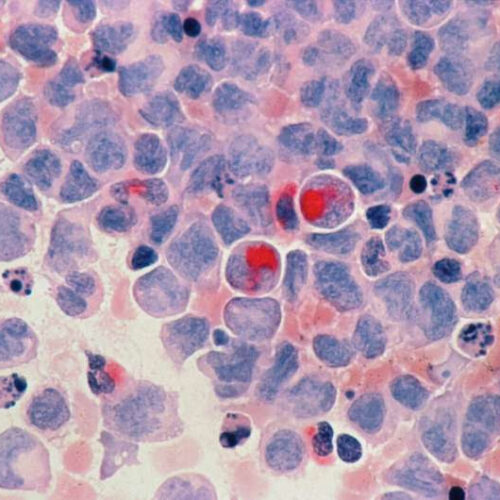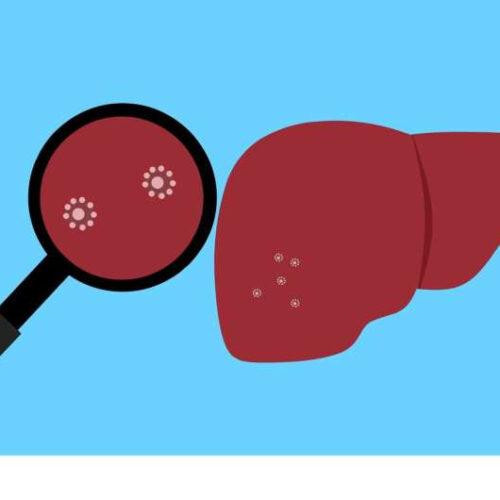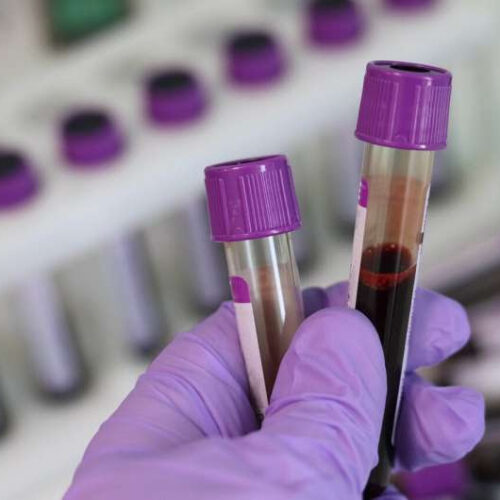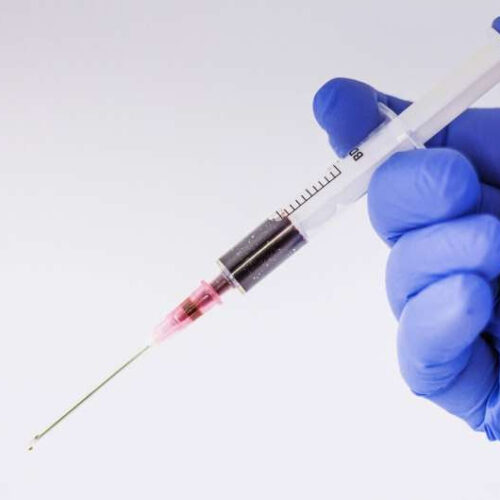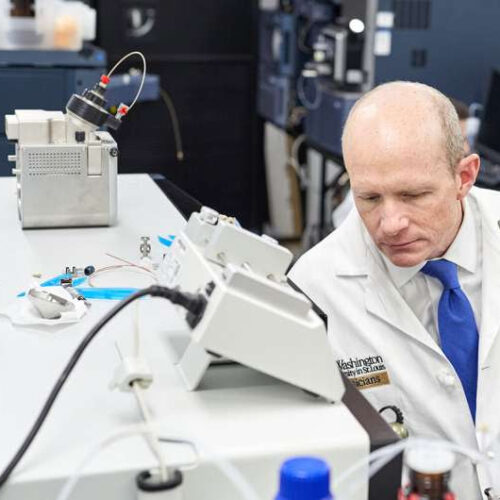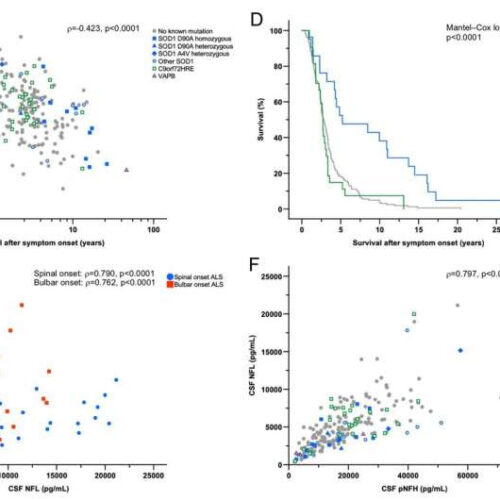Annual screenings of patients at high risk for lung cancer can catch tumors early and improve a patient’s long-term prognosis. However, low-dose computer tomography (LDCT) has a high false-positive rate that can lead to unnecessary biopsies. The researchers found a biomarker in the blood that can complement LDCT by distinguishing non-small-cell lung cancer (NSCLC) from benign nodules...
Tag: <span>blood test</span>
Blood test may help determine if nodules detected by CT scans are lung cancer
UNIVERSITY OF MISSOURI-COLUMBIA Annual screenings of patients at high risk for lung cancer can catch tumors early and improve a patient’s long-term prognosis. However, low-dose computer tomography (LDCT) has a high false-positive rate that can lead to unnecessary biopsies. University of Missouri School of Medicine researchers have found a biomarker in the blood that can...
Blood test could predict future risk of leukemia, study finds
by University of Glasgow Credit: Unsplash/CC0 Public Domain Leukemia is often the result of the disruption to the fine balance in blood cell production where new cells are manufactured and old blood cells die. As we age, mutations in blood stem cells can mean that the altered cells can have a growth benefit over other blood cells and outnumber...
Researchers develop blood test to predict liver cancer risk
by UT Southwestern Medical Center Credit: Pixabay/CC0 Public Domain An estimated one-quarter of adults in the U.S. have nonalcoholic fatty liver disease (NAFLD), an excess of fat in liver cells that can cause chronic inflammation and liver damage, increasing the risk of liver cancer. Now, UT Southwestern researchers have developed a simple blood test to predict...
Prospect of blood test for Parkinson’s disease
by Eva Sittig, Christian-Albrechts-Universität zu Kiel Credit: CC0 Public Domain A research team at the Faculty of Medicine at Kiel University has developed a method that reliably detects protein changes in blood that are typical of Parkinson’s disease. Until now, the diagnosis of Parkinson’s disease has been based primarily on typical movement disorders such as...
New GP-administered blood test could help diagnose ovarian cancer faster and more accurately
by University of Manchester Credit: CC0 Public Domain A simple blood test that can be given by general practitioners (GPs) could help diagnose ovarian cancer faster and more accurately, particularly for women under the age of 50, according to research funded by leading women’s health charity, Wellbeing of Women. The study, undertaken by Dr. Garth...
Personalised blood test can detect persistent lung cancer
Scientists at the Cancer Research UK Cambridge Institute used a personalised blood test for patients, which is a type of liquid biopsy that can pick up tiny fragments of DNA that are released into the blood as tumours grow. This DNA, called circulating tumour DNA (ctDNA), can reveal the state of the tumour, its location and potentially...
Blood test for Alzheimer’s highly accurate in large, international study
A blood test developed at Washington University School of Medicine in St. Louis has proven highly accurate in detecting early signs of Alzheimer’s disease in a study involving nearly 500 patients from across three continents, providing further evidence that the test should be considered for routine screening and diagnosis. The study is available in the journal Neurology....
Blood test for Alzheimer’s proves highly accurate in large, international study
by Gerry Everding, Washington University School of Medicine Neurologist Randall J. Bateman, MD, the Charles F. and Joanne Knight Distinguished Professor of Neurology, inspects a mass spectrometry machine at Washington University School of Medicine in St. Louis. Using mass spectrometry, Bateman and colleagues have developed a blood test that is up to 93% accurate at...
Simple and reliable ALS diagnosis with blood tests
by University of Gothenburg Biomarker correlation to survival, survival analyses in clinical symptom onset and genotype groups, biomarker ratios and ALSFRS-R in ALS patients. (A) Correlation between plasma NFL and survival after symptom onset stratified by spinal and bulbar symptom onset. (B) Kaplan–Meier survival analysis for spinal onset versus bulbar onset ALS patients. (C) Correlation...

